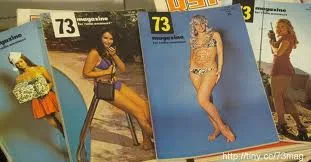
I mentioned in the last podcast that I was going to take a break from construction projects and spend a little time fixing up tools, test gear, and the work bench. First up was my old soldering gun. I bought this thing almost 40 years ago! It is pretty beat up, but I managed to patch it up and it now works fine. Even the original light bulb works.

I use this little AADE L/C meter a lot, but was having trouble getting parts across the test terminals. So I soldered alligator clips onto one of the parts connectors that came with the device. Makes testing easier.

Just a little audio oscillator. Puts out .2 volts at 713 Hz. Useful for testing the phone rigs.

I picked up this little Lafayette power supply at a hamfest and found it quite useful. But then I managed to knock the needle off the meter while fooling around with trivial electric motor. Any ideas on where I could get a replacement meter movement, or on what value I should use?

Here is a wave meter that I picked up at the Kemptom Park rally in London. Apparently at one point all UK radio amateurs were required to have one of these devices. I'm tempted to chop it up for parts. That variable cap with the reduction drive looks promising. And could that meter solve my problem with the power supply (above). If anyone can think of a reason to keep this as a wavemeter, please let me know.

Further proof of my extreme retro-ness. This is what I use as a signal generator. A Heathkit SG-6. Older than me!

This is my scope. HAMEG. Supposed to be good to 10 MHz but of course I can use it at higher freqs (which I do). I need to upgrade. Any suggestions?

A very useful little square wave generator.

I need to make more use of this noise bridge. Lots of potential here.

Obviously a London purchase. Very useful little AF sig generator from the UK's equivalent of Radio Shack. My only complaint: No auto-off. I forget to turn it off and run down the two 9 V batteries.

Long time listeners will remember this device. This is the one in which I soldered in the chip upside down. It works fine on th 5 Hz to 100 MHz range. Dead on the 4 - 600 MHz position.

I bought this power supply at the Kempton Rally, then converted it into a current limited supply using a chip and a circuit provided by Tony, G4WIF. My daughter Maria helped paint the cabinet. Lots of soul in this little machine.

Just three meters. The middle (analog one) is still very useful, and has considerable sentimental value for me -- my wife got if for me when we were back in the Dominican Republic.

My version of the W7ZOI power meter. Mike, KL7R, and I built versions of this device back in 2004 or so.

This is Cappuccio. He joins me in the shack most mornings. I'm not really a dog person, but I'm growing fond of him, even though he occasionally eats resistors and capacitors.
Our book: "SolderSmoke -- Global Adventures in Wireless Electronics"
http://soldersmoke.com/book.htmOur coffee mugs, T-Shirts, bumper stickers:
http://www.cafepress.com/SolderSmokeOur Book Store:
http://astore.amazon.com/contracross-20
 The solar flux index is now above 131 and the effects are very apparent on 17 meters. (I will pull out the telescope this morning to get some direct confirmation of improved solar conditions!) This morning I worked Daniel, F5BBD, with my little DSB rig with the 5 watt JBOT amplifier. Very solid contact. He gave me a 55. I hear Japanese stations in the evening. And I am hearing guys on 17 who I haven't heard since the last solar cycle: My friend Chris SM0OWX seems to be right where he was when we last spoke.
The solar flux index is now above 131 and the effects are very apparent on 17 meters. (I will pull out the telescope this morning to get some direct confirmation of improved solar conditions!) This morning I worked Daniel, F5BBD, with my little DSB rig with the 5 watt JBOT amplifier. Very solid contact. He gave me a 55. I hear Japanese stations in the evening. And I am hearing guys on 17 who I haven't heard since the last solar cycle: My friend Chris SM0OWX seems to be right where he was when we last spoke. 























